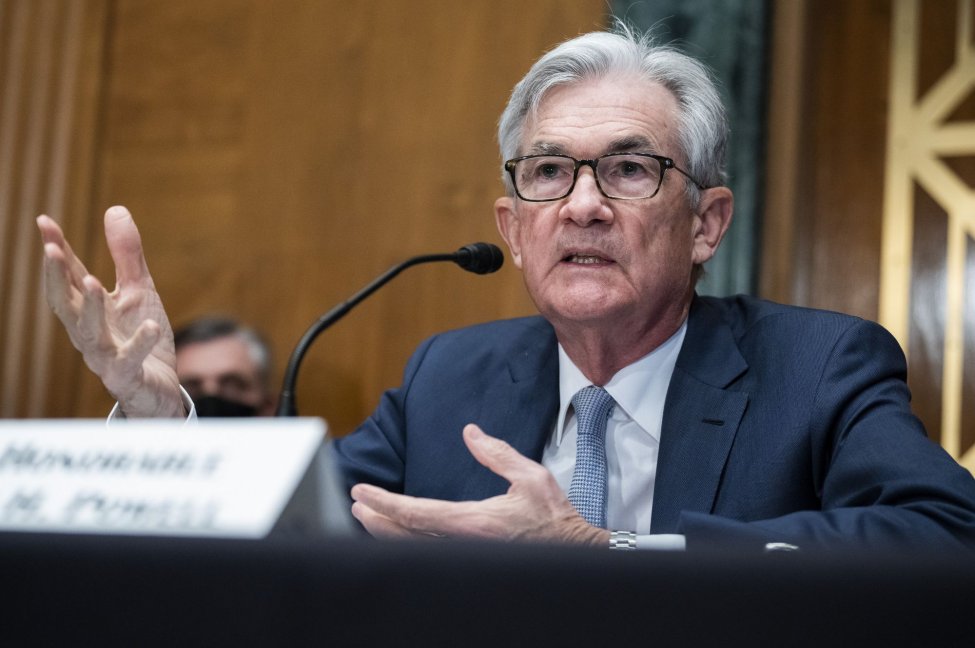Fed Chair Teases Looser Crypto Rules as Washington Eyes Stablecoin Bill
17.04.2025 14:12 2 min. read Alexander Stefanov
Federal Reserve Chair Jerome Powell has hinted that U.S. banks may soon see more flexibility when it comes to handling digital assets—a notable shift from the cautious approach regulators have maintained in recent years.
Speaking at an event hosted by The Economic Club of Chicago, Powell acknowledged the past turbulence in the crypto space, pointing to fraud and high-profile collapses. Despite this, he suggested that digital assets are starting to gain mainstream legitimacy. With this in mind, he noted that current regulatory restrictions—put in place to protect financial institutions and consumers—may be eased going forward.
According to Powell, the goal is to strike a careful balance: opening the door to innovation without compromising the financial system’s integrity. While regulators have historically taken a hardline stance on banks’ involvement in crypto, Powell indicated that a more nuanced approach is on the table—one that supports experimentation while keeping risks in check.
Since Donald Trump returned to office earlier this year, financial regulators have shown a clear pivot in tone. The Federal Deposit Insurance Corporation (FDIC) recently announced plans to roll back outdated crypto guidance and instead give banks more autonomy, allowing them to engage in approved crypto activities without needing prior clearance. Similarly, the Office of the Comptroller of the Currency reaffirmed that crypto-related services are permitted within the federal banking system.
Meanwhile, lawmakers in Congress are making rapid progress on new legislation for stablecoins. Both chambers have advanced bills through committee, and Trump has urged quick passage. Powell welcomed this momentum, emphasizing the importance of oversight for these increasingly popular digital assets.
He described stablecoins as a product with broad potential appeal—one that, if properly regulated, could offer consumers transparency and protection. Powell said he views the legislative developments around stablecoins as encouraging signs of a maturing crypto policy landscape.
-
1
Coinbase and Set Gemini to Expand in EU Under MiCA Rules
17.06.2025 13:00 2 min. read -
2
Wall Street Prepares for Stablecoin Integration as Regulatory Path Clears
19.06.2025 11:00 1 min. read -
3
U.S. Senate Moves Closer to Passing Landmark Stablecoin Legislation
17.06.2025 10:00 1 min. read -
4
Bangkok Opens Five-Year Tax Holiday for Crypto Traders
18.06.2025 18:00 2 min. read -
5
Norway Weighs Temporary Freeze on Crypto Mining to Conserve Energy
21.06.2025 8:00 1 min. read
Here is When the U.S. House Will Vote on Key Crypto Bills
Following the passage of President Donald Trump’s sweeping tax and spending bill, House Republicans are now setting the stage for a major push on cryptocurrency legislation.
SEC Chairman With Important Comments on Regulation, Crypto, and Trading
U.S. Securities and Exchange Commission (SEC) Chairman Paul Atkins has emphasized the agency’s continued focus on investor protection, addressing insider trading, market manipulation, and the evolving landscape of cryptocurrency regulation.
Arizona Governor Vetoes Bill, Related to State Crypto Reserve Fund: Here Is Why
Arizona Governor Katie Hobbs has officially vetoed House Bill 2324, a legislative proposal that aimed to create a state-managed reserve fund for holding seized cryptocurrency assets.
SEC Explores New Fast-Track Process for Token-Based ETFs
The U.S. Securities and Exchange Commission (SEC) is in the early stages of developing a standardized listing framework for token-based exchange-traded funds (ETFs), according to a July 1 report by journalist Eleanor Terrett.
-
1
Coinbase and Set Gemini to Expand in EU Under MiCA Rules
17.06.2025 13:00 2 min. read -
2
Wall Street Prepares for Stablecoin Integration as Regulatory Path Clears
19.06.2025 11:00 1 min. read -
3
U.S. Senate Moves Closer to Passing Landmark Stablecoin Legislation
17.06.2025 10:00 1 min. read -
4
Bangkok Opens Five-Year Tax Holiday for Crypto Traders
18.06.2025 18:00 2 min. read -
5
Norway Weighs Temporary Freeze on Crypto Mining to Conserve Energy
21.06.2025 8:00 1 min. read


